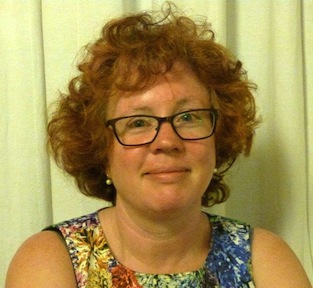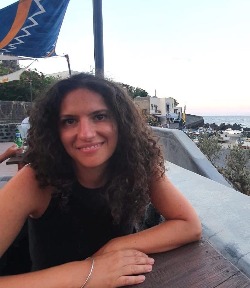Formazione e ricerca
Attività Formative del Corso di Dottorato - 2023/2024
Rhythm, meter, and syncopation: A linguistic perspective
Crediti: 1
Lingua di erogazione: English
Docente: Gaetano Fiorin (Università di Trieste)
Introduzione ai processi di elaborazione linguistica. Elaborazione linguistica delle parole tabù
Crediti: 1
Lingua di erogazione: Italiano
Docente: Simone Sulpizio (Università di Milano-Bicocca)
Exploring Worldwide Morphosyntax
Crediti: 1
Lingua di erogazione: English
Docente: Neele Harlos (Philipps-Universität Marburg)
Discovering language through vision: Eye-tracking for linguistic research
Crediti: 1
Lingua di erogazione: English
Docente: Marta Tagliani, Michela Redolfi
Clinical and Experimental Neurolinguistics Workshop
Crediti: 1
Lingua di erogazione: English
Docente: Simona Mancini (Basque Center on Cognition, Brain and Language, BCBL)
Speaker categorisation in empirical linguistics
Crediti: 1,5
Lingua di erogazione: English
Docente: Gabriele Pallotti (Università di Modena e Reggio Emilia), Judith Purkarthofer (Universität Duisburg-Essen)
Syntactic microvariation
Crediti: 1
Lingua di erogazione: English
Docente: Alessandra Tomaselli, Cecilia Poletto (Università di Padova, Goethe-Universität Frankfurt)
Language Policy
Crediti: 1,5
Lingua di erogazione: English
Docente: Inna Kabanen (University of Helsinki), Daniele Artoni
Genus, Sexus und Gender am Beispiel des Deutschen, Russischen und Armenischen
Crediti: 1
Lingua di erogazione: German
Docente: Gayane Savoyan
The German Language in America: Bilingualism and Language Contact
Crediti: 1
Lingua di erogazione: English
Docente: Mark L. Louden (The University of Wisconsin-Madison)
Quantitative Methods in Linguistics
Crediti: 3
Lingua di erogazione: English
Docente: Alessandro Vietti (Free University of Bozen-Bolzano)
Origine e sviluppo storico della lingua danese
Crediti: 1
Lingua di erogazione: Italiano
Docente: Luca Panieri (Università IULM Milano)
Natural Language Processing for Non-standard Language and Dialects: Challenges and Current Approaches
Crediti: 0,5
Lingua di erogazione: Inglese
Docente: Barbara Plank (LMU München)
Insegnare e imparare il tedesco tra tardo Medioevo e primo Evo moderno
Crediti: 0,5
Lingua di erogazione: Italiano
Docente: Marialuisa Caparrini (Università degli Studi di Ferrara)
Data Curation & Visualization in R
Crediti: 2
Lingua di erogazione: English
Docente: Massimiliano Canzi (University of Konstanz)
Metaphors and Vaccination
Crediti: 0,5
Lingua di erogazione: English
Docente: Elena Semino (Lancaster University)
Language Comprehension in Dyslexia: Sentence Processing, Linguistic Prediction, and Educational Issues
Crediti: 1
Lingua di erogazione: English
Docente: Paul Engelhardt (University of East Anglia)
Phonology
Crediti: 2,5
Lingua di erogazione: English
Docente: Birgit Alber (Freie Universität Bozen), Eirini Apostolopoulou (University of Thessaloniki)
Introduction to Conversation Analysis
Crediti: 2,5
Lingua di erogazione: English, Italian
Docente: Daniela Veronesi (Freie Universität Bozen), Elwys De Stefani (Universität Heidelberg)
Introduction to language documentation
Crediti: 0,5
Lingua di erogazione: English
Docente: Peter Austin (SOAS University of London)
Computational Linguistics
Crediti: 0,5
Lingua di erogazione: English
Syntactic microvariation (2023/2024)
Docenti
Alessandra Tomaselli , Cecilia Poletto (Università di Padova, Goethe-Universität Frankfurt)
Referente
Crediti
1
Lingua di erogazione
English
Frequenza alle lezioni
Obbligatoria
Sede
VERONA
Obiettivi di apprendimento
On successful completion of this module, PhD students will be able to demonstrate to:
• understand the basic theoretical concepts and methodological issues underlying the discussion on the format of parameters in the generative grammar framework;
• recognize the role of micro-variation in order to identify the core aspects of a given syntactic phenomenon;
• apply their knowledge and critical thinking to choose between different theoretical models.
Prerequisiti e nozioni di base
Basic knowledge of the Government & Binding model
Programma
The aim of this seminar is to show the importance of micro- variation for the discussion about the format of parameters within the generative grammar framework. In particular, we will discuss two well-studied syntactic parameters, i.e. +/- V2 and +/-Null Subject, which represent the major divide between Germanic and Romance varieties. The comparison between standard varieties (Italian versus German) – dialects (Venetan versus Bavarian) - varieties spoken in isolation (Cimbrian and Plodarisch) will lead us to reveal the “core” aspects of the syntactic phenomena under investigation and evaluate the weight of the peripheral correlates in the diachronic process which brings to parametric changes.
Readings
• Bidese, Ermenegildo & Alessandra Tomaselli (2018), Developing pro-drop: The case of Cimbrian. In: Federica Cognola & Jan Casalicchio (eds.), Null Subjects in Generative Grammar. A synchronic and Diachronic Perspective. Oxford: Oxford University Press, 52-69.• Moro, Andrea & Ian Roberts (2023), The duality of syntax, unstable structure, labelling and linearization. lingbuzz/007227 [forthcoming in NLLT].
• Poletto, Cecilia (2019), More than one way out: on the factors influencing the loss of V to C movement. Linguistic Variation 19/1, 47-81.
• Poletto, Cecilia & Alessandra Tomaselli (2019), The mindering path of VO and OV up in the Alps. In: Francesco Costantini (ed.), Syntactic Variation. The View from the German-language Islands in Northeastern Italy. Udine: FORUM, 105- 115.
• Poletto, Cecilia & Alessandra Tomaselli (2021), Resilient Subject Agreement Morpho-Syntax in the Germanic Romance Contact Area. Languages 6(3), 119 [Special Issue, edited by Angel Gallego et al., Syntactic Variation in Language Contact Situations. The view from an I-Language Perspective]. https://doi.org/10.3390/languages6030119
Bibliografia
Quando e Dove
Univr, Aula Co-Working
Referente: Alessandra Tomaselli (alessandra.tomaselli@univr.it)
Modalità di verifica dell'apprendimento
PhD students can choose aspects of the module as topic of their term paper
Valutazione
Originality, clarity of presentation
Criteri di composizione del voto finale
the evaluation will be either positive or negative
Lezioni Programmate
| Quando | Aula | Docente | Argomenti |
|---|---|---|---|
|
lunedì 22 gennaio 2024 10:00 - 12:00 Durata: 2.00 |
Palazzo di Lingue - Co-Working [04 - M] |
Alessandra Tomaselli
Cecilia Poletto (Università di Padova, Goethe-Universität Frankfurt) |
Syntactic microvariation
. |
|
lunedì 22 gennaio 2024 14:00 - 16:00 Durata: 2.00 |
Palazzo di Lingue - Co-Working [04 - M] |
Alessandra Tomaselli
Cecilia Poletto (Università di Padova, Goethe-Universität Frankfurt) |
Syntactic microvariation
. |
|
martedì 23 gennaio 2024 10:00 - 12:00 Durata: 2.00 |
Palazzo di Lingue - Co-Working [04 - M] |
Alessandra Tomaselli
Cecilia Poletto (Università di Padova, Goethe-Universität Frankfurt) |
Syntactic microvariation
. |
|
martedì 23 gennaio 2024 14:00 - 16:00 Durata: 2.00 |
Palazzo di Lingue - Co-Working [04 - M] |
Alessandra Tomaselli
Cecilia Poletto (Università di Padova, Goethe-Universität Frankfurt) |
Syntactic microvariation
. |
|
mercoledì 24 gennaio 2024 10:00 - 12:00 Durata: 2.00 |
Palazzo di Lingue - Co-Working [04 - M] |
Alessandra Tomaselli
Cecilia Poletto (Università di Padova, Goethe-Universität Frankfurt) |
Syntactic microvariation
. |
Attività Formative della Scuola di Dottorato - 2023/2024
Please note: Additional information will be added during the year. Currently missing information is labelled as “TBD” (i.e. To Be Determined).
PhD students must obtain a specified number of CFUs each year by attending teaching activities offered by the PhD School.
First and second year students must obtain 8 CFUs. Teaching activities ex DM 226/2021 provide 5 CFUs; free choice activities provide 3 CFUs.
Third year students must obtain 4 CFUs. Teaching activities ex DM 226/2021 provide 2 CFUs; free choice activities provide 2 CFUs.
Registering for the courses is not required unless explicitly indicated; please consult the course information to verify whether registration is required or not. When registration is actually required, no confirmation e-mail will be sent after signing up.
Teaching Activities ex DM 226/2021: Linguistic Activities
INFORMATION: ENGLISH FOR ACADEMIC PRESENTATION SKILLS [Arts and Humanities]
Crediti: 2,5
Lingua di erogazione: Inglese
INFORMATION: ENGLISH FOR ACADEMIC PRESENTATION SKILLS [Law and Economics]
Crediti: 2,5
Lingua di erogazione: Inglese
INFORMATION: ENGLISH FOR ACADEMIC PRESENTATION SKILLS [Life and Health Sciences - 1 st Session]
Crediti: 2,5
Lingua di erogazione: Inglese
INFORMATION: ENGLISH FOR ACADEMIC PRESENTATION SKILLS [Life and Health Sciences - 2 nd Session]
Crediti: 2,5
Lingua di erogazione: Inglese
INFORMATION: ENGLISH FOR ACADEMIC PRESENTATION SKILLS [Natural Sci. and Engineering-1st Session]
Crediti: 2,5
Lingua di erogazione: Inglese
INFORMATION: ENGLISH FOR ACADEMIC PRESENTATION SKILLS [Natural Sci. and Engineering-2nd Session]
Crediti: 2,5
Lingua di erogazione: Inglese
INFORMATION: ENGLISH FOR ACADEMIC WRITING SKILLS [Arts and Humanities]
Crediti: 2,5
Lingua di erogazione: Inglese
INFORMATION: ENGLISH FOR ACADEMIC WRITING SKILLS [Law and Economics]
Crediti: 2,5
Lingua di erogazione: Inglese
INFORMATION: ENGLISH FOR ACADEMIC WRITING SKILLS [Life and Health Sciences - 1 st Session]
Crediti: 2,5
Lingua di erogazione: Inglese
INFORMATION: ENGLISH FOR ACADEMIC WRITING SKILLS [Life and Health Sciences - 2 nd Session]
Crediti: 2,5
Lingua di erogazione: Inglese
INFORMATION: ENGLISH FOR ACADEMIC WRITING SKILLS [Natural Sci. and Engineering-1st Session]
Crediti: 2,5
Lingua di erogazione: Inglese
INFORMATION: ENGLISH FOR ACADEMIC WRITING SKILLS [Natural Sci. and Engineering-2nd Session]
Crediti: 2,5
Lingua di erogazione: Inglese
Teaching Activities ex DM 226/2021: Research management and Enhancement
SEMINARIO AVANZATO SULLE RISORSE BIBLIOTECARIE PER LA RICERCA [Arts and Humanities]
Crediti: 2,5
Lingua di erogazione: Italiano
Docente: Donatella Boni
SEMINARIO AVANZATO SULLE RISORSE BIBLIOTECARIE PER LA RICERCA [Law and Economics]
Crediti: 2,5
Lingua di erogazione: Italiano
Docente: Luisella Zocca
SEMINARIO AVANZATO SULLE RISORSE BIBLIOTECARIE PER LA RICERCA [Scientific Area]
Crediti: 2,5
Lingua di erogazione: Italiano
Docente: Elena Scanferla
Teaching Activities ex DM 226/2021: Statistics and Computer Sciences
INTRODUCTION TO PROBABILITY (MODULE I)
Crediti: 1
Lingua di erogazione: Inglese
Docente: Marco Minozzo
INTRODUCTION TO PROBABILITY (MODULE II)
Crediti: 1
Lingua di erogazione: Inglese
Docente: Marco Minozzo
BASIC LEVEL STATISTICS - RECOMMENDED FOR HUMAN SCIENCES
Crediti: 2,5
Lingua di erogazione: Inglese
INTRODUCTION TO STATISTICAL INFERENCE
Crediti: 1
Lingua di erogazione: Inglese
VALIDITY AND RELIABILITY OF MEASUREMENTS AND DIAGNOSTIC TESTS
Crediti: 0,5
Lingua di erogazione: English
Docente: Alessandro Marcon
BASIC LEVEL STATISTICS
Crediti: 2,5
Lingua di erogazione: Italiano
Statistical analysis with R - module I
Crediti: 1
Lingua di erogazione: Italiano
Docente: Erica Secchettin
Generalized linear models: logistic regression, loglinear model, Poisson model
Crediti: 2
Lingua di erogazione: English
Docente: Lucia Cazzoletti
STUDY DESIGN IN OBSERVATIONAL AND EXPERIMENTAL RESEARCH
Crediti: 1,5
Lingua di erogazione: English
Docente: Alessandro Marcon
DETERMINATION OF SAMPLE SIZE TO ACHIEVE A PREDEFINED PRECISION OR POWER
Crediti: 1
Lingua di erogazione: English
Docente: Giuseppe Verlato
INTRODUCTION TO META-ANALYSIS, FOCUSED ON MEDICAL RESEARCH (LITERATURE REVIEW, DATA COLLECTION, DATABASE CONSTRUCTION)
Crediti: 1
Lingua di erogazione: English
Docente: Giuseppe Verlato
APPLICATION OF META-ANALYSIS TO THE EPIDEMIOLOGICAL OR MEDICAL FIELD
Crediti: 1
Lingua di erogazione: Inglese
Docente: Giuseppe Verlato
Survival analysis: log-rank test, Kaplan-Meier survival curves, Cox regression model
Crediti: 1,5
Lingua di erogazione: Inglese - English
Docente: Simone Accordini
INTERMEDIATE STATISTICS [Recommended for Human Sciences]
Crediti: 2,5
Lingua di erogazione: Inglese
INTERMEDIATE STATISTICS [Tutti i corsi di studio]
Crediti: 2,5
Lingua di erogazione: Inglese
Statistical analysis with R - module II
Crediti: 2
Lingua di erogazione: Italiano
Docente: Erica Secchettin
Teaching Activities: Free choice
PROTECTING PSYCHOLOGICAL WELL-BEING IN THE PHD PROGRAM: WHAT DO WE NEED TO CONSIDER FOR BEING A GOOD SCIENTIST: BEST PRACTICE AND THE ETHICS OF SCIENCE
Crediti: 1
Lingua di erogazione: inglese
Docente: Paola Cesari
QUANDO LA RICERCA SI FA ETICA (PERCORSO ORGANIZZATO E FINANZIATO DAL TEACHING AND LEARNING CENTER DI UNIVR)
Crediti: 2
Lingua di erogazione: Italiano
Docente: Roberta Silva
IMPARA IL MARKETING DIGITALE
Crediti: 1,5
Lingua di erogazione: English
LA POESIA ITALIANA ALL’ESTERO
Crediti: 1
Lingua di erogazione: Italiano
Docente: Massimo Natale
COSTRUISCI IL TUO BUSINESS MODEL CANVAS
Crediti: 1,5
Lingua di erogazione: English
APPROCCI E METODOLOGIE PARTECIPATIVE NELLA RICERCA CON GLI ATTORI DEL TERRITORIO
Crediti: 1,5
Lingua di erogazione: Italiano
Docente: Cristiana Zara
DOING INTERVIEWS IN QUALITATIVE RESEARCH
Crediti: 1,5
Lingua di erogazione: English
Docente: Chiara Sità
LA COMUNICAZIONE UMANISTICA: OPPORTUNITA' E RISCHI
Crediti: 1
Lingua di erogazione: Italiano
DIFFERENTIAL DIAGNOSIS OF DEMYELINATING DISEASES OF THE CENTRAL NERVOUS SYSTEM
Crediti: 2
Lingua di erogazione: English
Docente: Alberto Gajofatto
IL SONNO E I SUOI DISTURBI: FOCUS SULLE PARASONNIE E I DISTURBI DEL MOVIMENTO IN SONNO
Crediti: 1
Lingua di erogazione: English
Docente: Elena Antelmi
IMAGING TECHNIQUES FOR BODY COMPOSITION ANALYSIS
Crediti: 1
Lingua di erogazione: English
Docente: Carlo Zancanaro
OPEN SCIENCE: THE MIGHTY STICK AGAINST "BAD" SCIENCE
Crediti: 2
Lingua di erogazione: English
Docente: Alberto Scandola
THE EMPIRICAL PHENOMENOLOGICAL METHOD (EPM): THEORETICAL FOUNDATION AND EMPIRICAL APPLICATION IN EDUCATIONAL AND HEALTHCARE FIELDS
Crediti: 2
Lingua di erogazione: English
THE PATHWAY OF OXYGEN: CAUSE OF HYPOXEMIA
Crediti: 1
Lingua di erogazione: English
Docente: Carlo Capelli
Docenti
 michela.redolfi@univr.it
michela.redolfi@univr.it
 marta.tagliani@univr.it
marta.tagliani@univr.it
Dottorandi
Non è presente alcuna persona. 40° Ciclo non iniziato.
Loading...
Linee guida percorso formativo
Di seguito i file che contengono le Linee guida per il percorso formativo e il regolamento per l'acquisizione dei crediti formativi (CFU) per l'Anno Accademico 2023/2024.
Documenti
| Titolo | Info File |
|---|---|
|
|
pdf, it, 118 KB, 12/12/23 |
|
|
pdf, it, 89 KB, 12/12/23 |
|
|
pdf, it, 434 KB, 12/12/23 |
|
|
pdf, it, 115 KB, 12/12/23 |



 +39 045802 8465
+39 045802 8465










